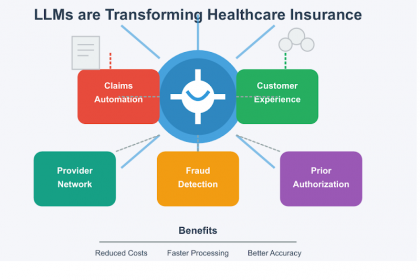In today’s business world, where the customer is put first, both large and small organizations are investing in CRM technology to automate and manage customer interactions, customer service, and retail sales dealings. Most firms today have invested in sophisticated CRM systems that help in tracking customer information. One limitation still prevails: the quality of the customer data. A critical aspect of ensuring the success of a CRM system is CRM data migration, especially when transitioning from legacy systems to more modern platforms. Poor data quality during the migration process can result in inaccurate or incomplete customer profiles, which can undermine the potential benefits of CRM systems.
A pivotal reason concerning the success of a CRM project is “data quality”. Failure to manage data appropriately also wrecks havoc on customer relationship management. Trust-based Customer relationship management systems (CRM) need accurate, precise, and consistent data which is treasurable, dependably reproducible, and reliable. The full potential of a CRM can only be unlocked when all pieces of data in it meticulously curated.
Understanding CRM Data Quality
What are the attributes of a good CRM data
Data quality is a measure of the precision, completeness, internal consistency, and currency of customer information within a specific system, thus determining the quality of CRM data. Good quality CRM data must be current as well as no duplicate records within it and must be consistent throughout the system. It allow for seasonal, targeted and personalized communication with identified customers that would otherwise be impossible.
Some of the frequently used terms in regard to CRM data are duplicate records, out of source records, or non-maintained records. The lack of a global identifier for cross-referencing customer records eliminates any cross-referencing method ever used. Multiple entries of the same customer account such as name, company, email address, and phone numbers are often held against clients and thus not maintained.
Common Problems Encountered in CRM Data Management
Poor data quality in terms of customer data can mean duplicate records, incorrect contact details, missing fields, and obsolete information. CRM systems preformed sub optimally these issues los access to customer engagement while also hindering the value of ROI received from ancillary services.
Poor data quality undermines the operational success of the CRM system
Inaccurate Insights about Customers
Common errors in data capture tend to provide blurred reporting and analytics which circumvent insights about customers. A business founded on wrong information will have colossal setup expenditure in addition to scores of untapped markets.
Customer Journey which is not integrated
When a customer interacts not only with different customer service representatives from the same company but also across multiple channels within the company whose customer data is lacking cohesion, that ease makes the compartmentalization of aiding aid unnecessary if not cynical and thus has a large taboo attached to it.
Sales and Marketing approach which is ineffective
Most members of the Sales and Marketing teams heavily depend on CRM data for purposes of identifying leads, tending to prospects, clinching deals, etc. If the data does not meet set minimum accuracy and precision standards, that in turn increases the time needed to perform the processes add to lowered conversion rates.
Diminished Customer Satisfaction & Retention
Sustained erosion of trust and loyalty inevitably makes retaining customers extremely hard, owing to a gradual but extremely damaging spiral of trust and loyalty evoprating. Deep-seated trust issues along with the misguided information being sent, automatically addressing the customer using incorrect title or completely out of context material further cripples addressing the customer’s core needs.
Advantages of Accurate Data for CRM
Better Communication with Clients
Given monotonically pure and enriched data, targeted communication to customer segments can now be addressed. Data hygiene provides the tailoring for customer group communication to be based on preferences, behaviors, and historical interactions leading to increased engagement.
Breaking Down Silos
Unification of data silos enables all sales and support staff to work and collaborate together within the framework of multi level strategy based on the verifiable needs of the firm, thus customizing all marketing and sales interactions tailored specifically for them.
Enhanced Campaign Effectiveness and Target Audience Conversion
Marketers are able to properly target certain populations with specific campaigns using accurate lead scoring based on correct data. By targeting purposeful campaigns to the right people, improvement in overall conversion rates is obtained.
Increased Accuracy of Sales Forecaste And Performance Metrics Monitoring
Well-informed decision making along with improved strategies relies on accurate tangible results targeted from KPIs monitored from all possible customer interactions, sales, and revenue forecasts.
Key Factors Impacting CRM Data Quality
Data Entry Procedures and Mistakes
The possibility of making an error during manual data input is very high; these errors may include typos, missing fields, or duplicate entries. All these problems, which seem small at first, lead to data quality deterioration, and hamper performance in the CRM over time.
CRM System Interruption due to Lack of Integration
Systems that are not connected on a common platform and are used separately give rise to incoherent data which cause confusion. In the absence of proper integration, vital customer data may be missing from the CRM, and this gives rise to poor perspectives as well as decision-making.
Absence of Data Protection Policies
In the absence of set policies for data management, the departments act inconsistently, without coordination to achieve the set objectives. Data governance establishes criteria to ensure baseline levels of data quality, privacy, and information control which is indispensable for the upkeep of data.
Redundant and Outdated Records
Information vacuum cleaners tend to accumulate a treasure trove of outdated and redundant information as a business scales and customer information changes. Meaningful actions require up to date information, which is possible through regular information maintenance and updates.
Best Practices for Enhancing the Quality of CRM Data
Regular Data Checks and Cleansing Management
Periodic audits, for example, help in resolving duplications, incompleteness, outdated information, and so forth. Manually performing CRM data cleansing and maintenance tasks can also be done, but to save time, equip your business with specialized CRM data cleansing software.
Setting Up Data Validation Rules
The possibility of making errors is significantly limited with validation rules pertaining to data input set in place. Data validation checks ensure that all required data has been entered and that appropriate formats are used, as well as that values are within reasonable ranges.
Automatically Enriching And Updating Data
Routinely contact details and other relevant information such as records are filled through automation tools. When information is populated into the CRM system, it is done with precision and minimal effort.
Data Stewardship Training
Encouraging employees to take ownership of data quality and its relevance motivates them to manage the data accurately. By putting themselves in the shoes of those who will be receiving data, employees become motivated to take the necessary measures for ensuring data quality.
The Trends in CRM as well as Their Integration with Data Quality System
Advances with AI and machine learning technology enhancements.
Today’s Artificial Intelligence and Machine Learning technologies are revolutionizing the management of CRM related data. AI based solutions identify and correct, or predict changes in customer behavior with proactive data management on a more granular level.
Data Gets More Predictive Alongside Automation and The Accuracy Gap
With real-time data capabilities, businesses are able to take action promptly after a customer event occurs. This also works with predictive analytics to allow for highly tailored proactive campaign and customer service outreach.
Changing Quality Data Dynamics with Customer Experience Instruments.
Business tools that define “customer experience” are enhanced with CRM data. In order to guarantee accuracy through customer interaction, logical alignments need to be set along all data processes pertaining to every detail.
Conclusion
No longer is data quality an unexciting afterthought of an organization’s operations. Now, it is a key fundamental attribute of competitive advantage for success in CRM.. For businesses, precise, complete and consistent data translates to sharpened decision making, bettered customer relations, and overall enhanced business performance.
Investing in tools, training, governance frameworks, and quality control aligned with business goals unlocks the grace of CRM by setting the business towards long term success. Always remember that undertaking data migration or optimization requires prioritizing data quality.








